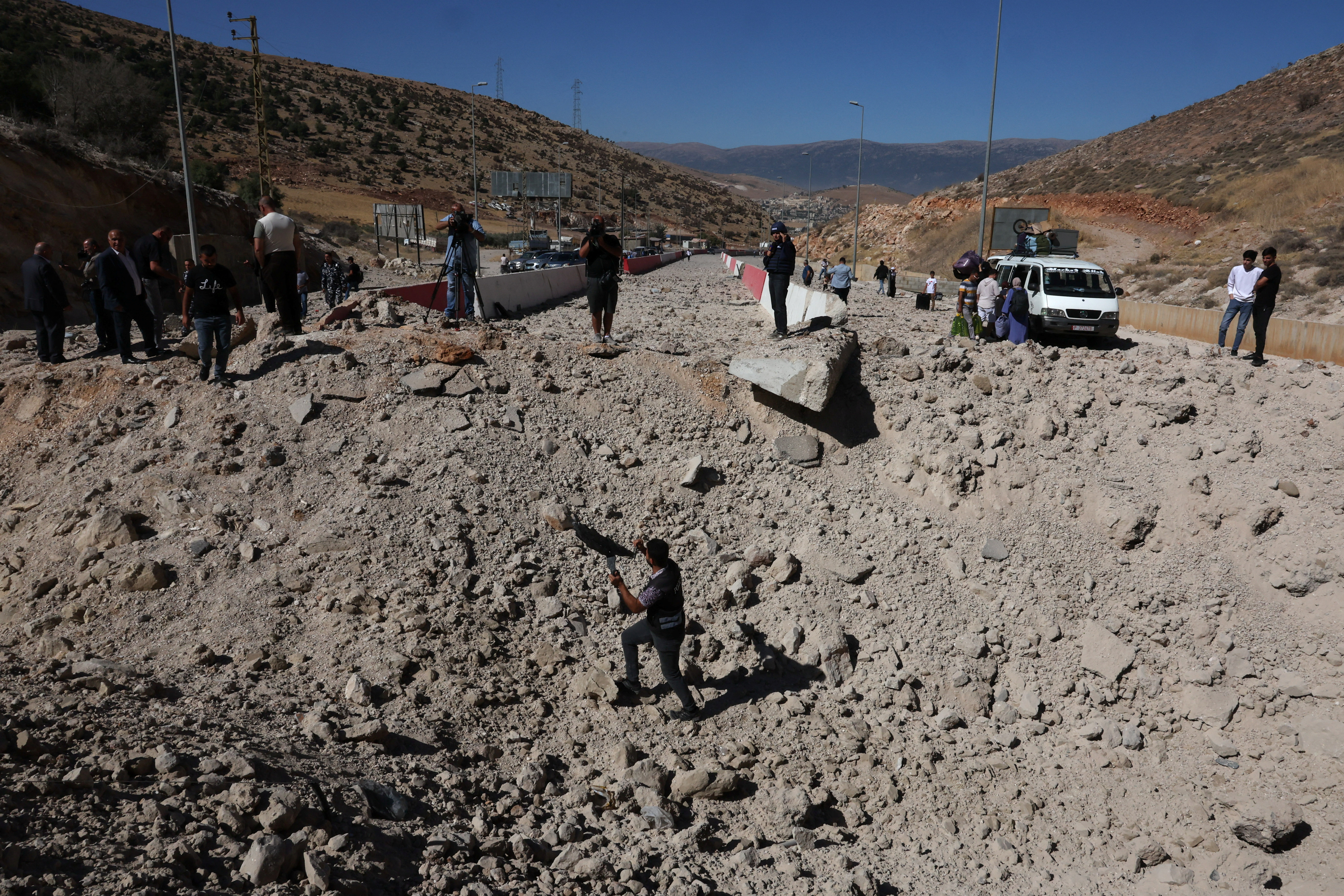Displacement used as ‘weapon of war’ in fight between Israel, Hezbollah
There is a massive humanitarian crisis, a displacement crisis in Lebanon. Hundreds of thousands of people are displaced in their own country. In fact, displacement has been used as a weapon of war by both sides.
The message from Hezbollah’s deputy secretary-general yesterday to the Israelis is that you will not be able to return tens of thousands of residents to northern Israel as long as you continue to strike targets in Lebanon. And we will cause even further displacement by targeting deeper inside Israel.
So the displacement could last for weeks – if not months – if there is no solution to this crisis and the United Nations is warning that this country cannot handle the situation. The needs are enormous and there are just not enough resources to help the people.

Tens of thousands fleeing Israeli attacks arrive in northern Lebanon
Lebanon’s disaster management in the north says at least 58,898 displaced people fleeing Israeli attacks in southern and eastern parts of the country have sought refuge in the northern districts. It named the areas as Bcharre, El Batroun, El Koura, El Minieh-Dennie, Tripoli and Zgharta.
Only 14,267 of them are being housed at official shelters, it said.
The highest numbers of displaced people were reported in Tripoli and El Minieh-Dennie districts, with the figures reaching 15,973 and 13,554, respectively.
Lebanese authorities say more than 1.2 million people have been displaced in Lebanon, resulting in shelters reaching capacity and people increasingly having to sleep out in the open on the street or in public parks.

Displaced children sleep at a car park in the centre of Beirut on October 8
Palestinian refugee camps in Lebanon affected by Israeli attacks
The UN’s agency for Palestinian refugees (UNRWA) reports the Ein el-Hilweh camp close to Sidon, El-Buss in Tyre, and Beddawi north of Tripoli have been affected by Israeli air strikes.
The organisation’s operations remain limited in the Tyre area in the south after being suspended during Israeli attacks at the start of October that displaced UNRWA staff. Only some “limited water and sanitation services continue”, it said.
“Three Palestine refugee camps in the south and one camp in Beirut are significantly depopulated as people have fled to seek safety and protection elsewhere,” the agency said in its latest situation report.
The UNRWA opened 12 emergency shelters after the intensifying Israeli attacks on Lebanon, but one was closed on October 7. Three emergency shelters “have reached maximum capacity”, according to the agency, which said 4,570 internally displaced people are registered in shelters.





























































